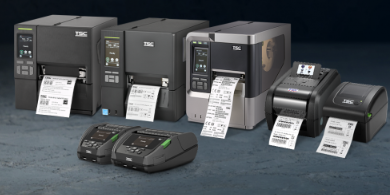
Mobile Device Management
Introduction To Enterprise Technology
In modern organizations, the use of smartphones, tablets, and laptops has grown rapidly. Employees now rely on mobile devices to access company emails, share files, and collaborate on business platforms. While this has boosted productivity, it has also raised serious security challenges. Mobile device management plays a vital role in controlling and protecting devices within a company’s network. It ensures that businesses can provide flexibility to employees while keeping sensitive data secure.
Understanding The Concept
Mobile device management refers to the centralized control of smartphones, tablets, and other portable gadgets used for business operations. It allows administrators to configure devices, monitor their activity, and enforce security rules. Instead of leaving every employee to manage their own device, companies use this system to standardize policies across all users. This makes operations more efficient and significantly reduces security risks.
Importance For Modern Businesses
The importance of mobile device management has increased with the rise of remote work and digital collaboration. Employees often use personal devices to connect to corporate networks, which can expose the organization to threats if not properly managed. Through this system, businesses can enforce password rules, restrict app installations, and remotely wipe data in case a device is lost. These measures are critical for safeguarding confidential information.
Core Features Of Mobile Device Management
Mobile device management solutions provide several essential features, including:
- Device Configuration: Administrators can set up Wi-Fi, VPN, and email accounts across multiple devices simultaneously.
- Application Management: Companies can allow or block specific apps to maintain productivity and prevent risks.
- Security Controls: Features such as encryption, two-factor authentication, and location tracking enhance safety.
- Remote Access: IT teams can troubleshoot problems or lock a lost device without physical access.
These features ensure that businesses maintain consistent security policies while enabling employees to work efficiently.
Security And Compliance Benefits
Cybersecurity threats are becoming more sophisticated, and organizations must remain compliant with industry regulations. Mobile device management helps meet these requirements by ensuring devices follow strict security standards. Whether in healthcare, finance, or government sectors, compliance laws demand secure handling of data. With centralized monitoring, businesses can demonstrate that they are actively protecting sensitive information and minimizing risks.
Support For Remote And Hybrid Work
The shift toward remote and hybrid work has made mobile device management even more important. Employees working from different locations need secure access to corporate systems without exposing the network to vulnerabilities. By implementing this solution, businesses can control device usage across varied environments. Remote wiping, secure app distribution, and monitoring tools give organizations the confidence to support flexible work arrangements.
Cost Efficiency And Productivity
Investing in Mobile Device Management not only enhances security but also reduces costs in the long run. Without centralized management, IT departments spend excessive time fixing individual device issues. With automation, updates and troubleshooting become faster, saving resources and improving employee productivity. Additionally, preventing data breaches helps businesses avoid financial losses and reputational damage.
Integration With Other Technologies
Mobile device management does not work in isolation. It integrates with identity management systems, cloud services, and endpoint security tools. Together, these technologies create a strong digital ecosystem where users can work safely without compromising convenience. The seamless integration of systems ensures that employees experience smooth workflows while administrators maintain control.
See also: The 4-Layer Tech Stack Any Small Business Can Maintain
Future Developments In Device Management
The future of mobile device management is tied to emerging technologies such as artificial intelligence and machine learning. AI-driven analytics will allow administrators to detect unusual patterns and respond to threats more quickly. As 5G and IoT continue to expand, managing a growing number of connected devices will also become essential. Future solutions are expected to be more adaptive, intelligent, and user-friendly.
Conclusion
Mobile device management is no longer optional for organizations; it is a necessity in today’s connected world. By providing centralized control, strong security, and compliance support, it empowers businesses to embrace mobility without fear of data loss or breaches. From remote work solutions to future-ready innovations, this system ensures that companies remain secure, productive, and competitive in a rapidly changing digital environment.



